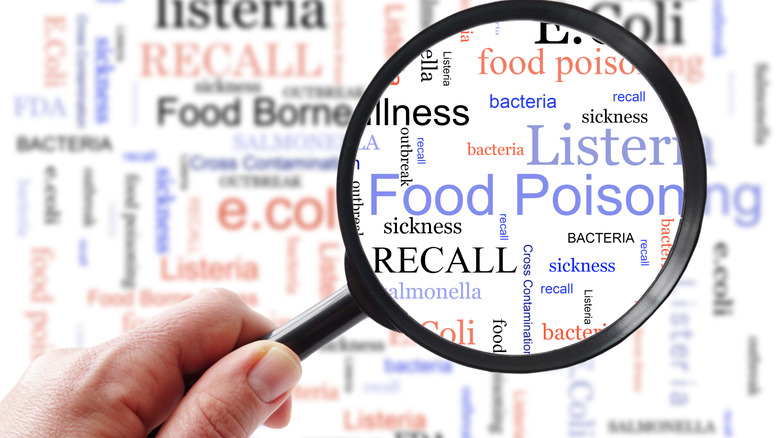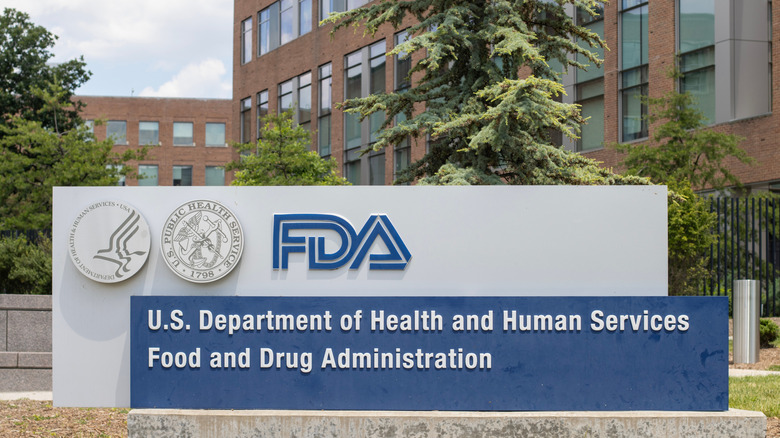The Major Cheese Recall That Led To Deaths And The Company Closing
Food recalls happen all the time, for various reasons. Unfortunately, the underlying problems are not always caught before they can cause lasting damage. One of the worst incidents the United States has ever experienced happened in 1985. It was a far-reaching event involving recalled cheeses that were linked to dozens of deaths. The company behind it was Jalisco Mexican Products, Inc., a small business in California that sold soft cheeses, such as queso fresco and cotija. The U.S. Centers for Disease Control and Prevention states that soft cheeses are more likely to be contaminated because they have a higher moisture content.
A listeria outbreak was traced back to Jalisco's products, and by the time it was over, there had been 142 cases of listeriosis across California (Los Angeles and Orange counties). However, the company could have sent tainted cheese to 16 or more states. At least 48 outbreak-related deaths occurred between January 1 and August 15, 1985.
The contamination hit vulnerable populations hardest, primarily the HIspanic community. It impacted pregnant women, infants, and the elderly. The deaths included 20 fetuses, 10 infants, and 18 adults who weren't pregnant. Once the link to Jalisco's cheese was confirmed, the company issued a massive recall. Jalisco faced well over 100 lawsuits and ultimately ceased operations. The recall and surrounding tragedies would provide a hard and painful lesson in how serious foodborne illnesses can be.
What went wrong and why it was so dangerous
The bacteria responsible for the outbreak was Listeria monocytogenes, which is known for being especially dangerous to pregnant people, newborns, and those with weakened immune systems. It thrives in soft cheeses and refrigerated foods, especially when products are made without strict hygiene controls. In Jalisco's case, investigators found serious lapses in cleanliness at its facility. It was suggested that contaminated equipment and poor handling practices helped the bacteria spread.
During the investigation of the 1985 listeriosis outbreak, Jalisco tried to shift the blame to its primary milk supplier, Alta-Dena Certified Dairy. The company argued that the raw milk provided by Alta-Dena was the source of the contamination. However, public health officials found no conclusive evidence of Listeria in the dairy herds supplying the milk, and investigations pointed to the conditions at Jalisco's own plant as the likely cause. Among the issues raised was the fact that the facility let unlicensed employees pasteurize the milk. It would also come to light that Jalisco had received more milk than it was equipped to pasteurize, raising the possibility that not all of the dairy was adequately treated.
How this outbreak changed U.S. food safety oversight
In the aftermath of the recall, Jalisco's principal owner Gary McPherson and company cheese maker Jose Luis Medina would spend time behind bars (30 and 60 days respectively) after entering "no contest" please for misdemeanor offenses. They also paid nearly $50,000 in fines. The outbreak showed how dangerous raw-milk products could be when not handled properly. Moreover, it highlighted flaws in the legal safeguards that existed at the time. Regulators took steps to improve pasteurization standards, and the government began advising at-risk populations to avoid certain unpasteurized dairy products altogether.
The event also raised awareness about how outbreaks are tracked. At the time, investigators weren't well-equipped to trace the source of the contamination or determine exactly how infections occurred. Health agencies and researchers have since worked to develop faster response systems for foodborne illnesses. What happened with Jalisco forced a reckoning and set a precedent for how seriously food recalls should be taken.


